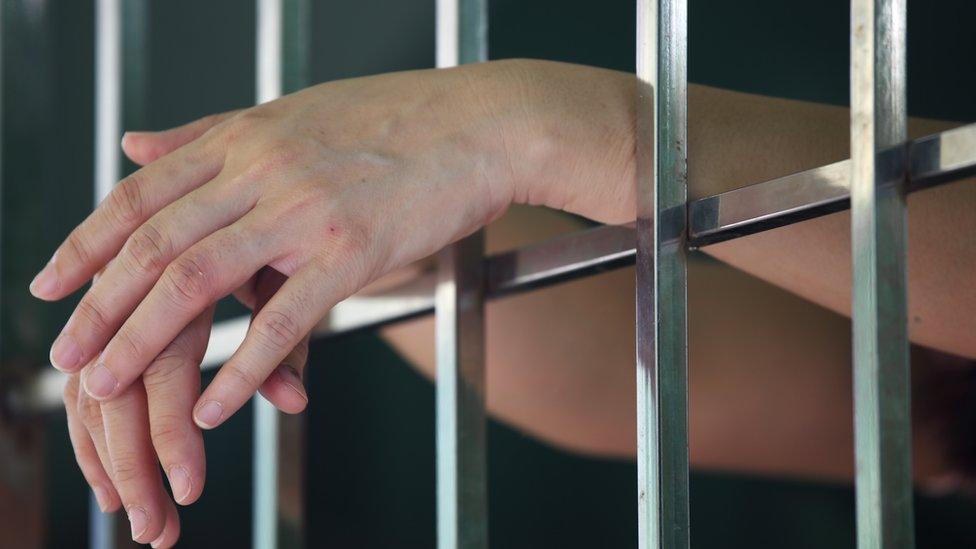Welsh prisoners held in nine out of 10 English jails
- Published
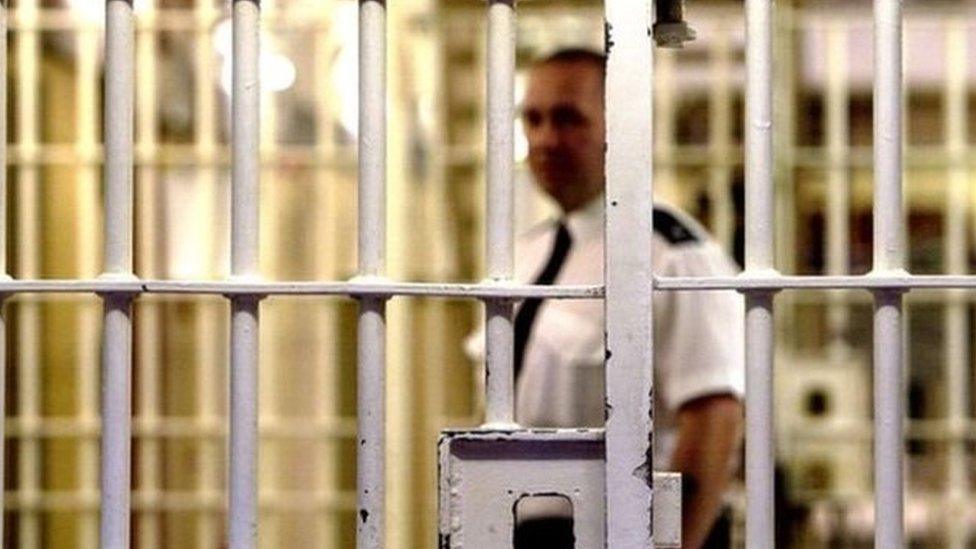
More than a third of prisoners from Wales are held in English facilities, a report has found.
Welsh prisoners are in nine out of 10 English jails according to the Wales Governance Centre research.
There are 4,704 people from Wales in prison, about 95% are men and 261 are women - all of whom are being held in 12 of England's women's prisons.
The report's author Dr Robert Jones said it contributed to the debate on imprisonment in Wales and elsewhere.
The figures, obtained through Freedom of Information requests, also reveal prisoners from Welsh counties are held in jails over a wide geographic spread.
About 282 male prisoners from Flintshire are in a total of 51 prisons; three in Wales and 48 in England.
Prisoners from Cardiff are spread across six prisons in Wales and 72 in England, and male prisoners from Carmarthenshire are held at 36 different English jails.
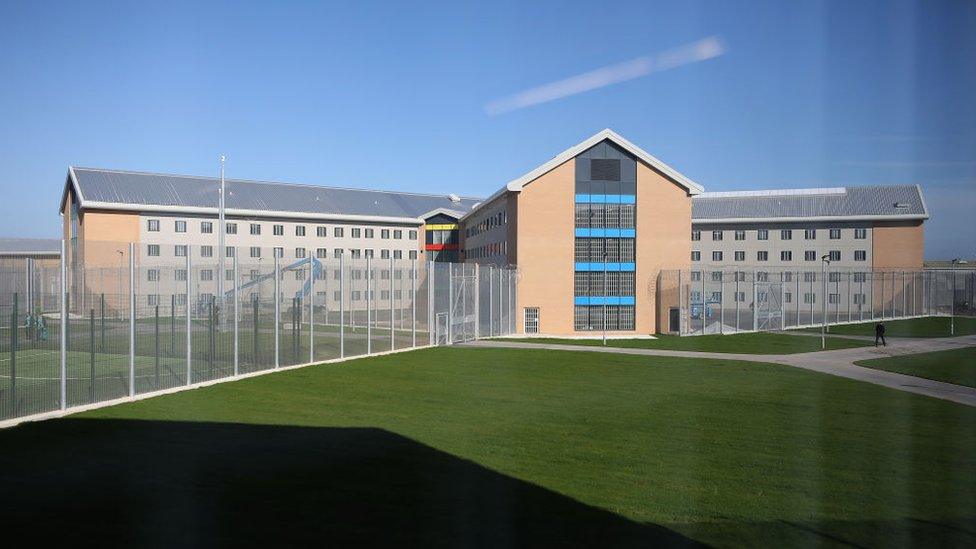
HMP Berwyn in Wrexham holds the largest number of English prisoners in Wales
The statistics also show that HMP Berwyn in Wrexham, which has room for 2,100 men, holds the largest number of English prisoners in Wales.
Almost two in three English prisoners in Wales are in Berwyn: 853 out of a total of 1,324 across Wales.
North Wales Crime and Police Commissioner Arfon Jones said too many Welsh prisoners have to serve their sentences in England.
"I would like to see more prisoners from Wales who now go to Altcourse in Liverpool being moved to the Berwyn prison in Wrexham," he told Post Cyntaf.
"They should also open a women's wing in Berwyn rather than sending them to English prisons."

Analysis: BBC Wales Home Affairs Correspondent Jenny Rees
The distance from home is important. Not just for those travelling to visit their loved ones in prison - increased travel costs make it less likely prisoners will get any visits from family.
With regard to support for housing, training opportunities to get back into work and drug support - if these services are unable to travel to inmates hundreds of miles away, the concern is that it will impact on an individual's prospects of reintegration into their community.
In effect, they fall through the gaps; they're missed.
Previous reports by the Wales Governance Centre have highlighted that on release from prison, some with drug addiction problems don't even finish the long journey home before scoring.
Throw into the mix the needs of Welsh speakers placed outside of Wales - and the 261 women, all of whom will be housed outside Wales - and the challenges facing those tasked with supporting a growing prison population become clear.

Dr Jones said the report will give local authorities more information about the location of prisoners, and help them to provide support to prisoners on release.
"By making this information publicly available for the very first time we hope that it will help those responsible for prisoners and prison leavers across Wales to better target and deliver services," he said.
"I hope that this information contributes to further discussions about imprisonment and the justice system in Wales."
- Published28 February 2017
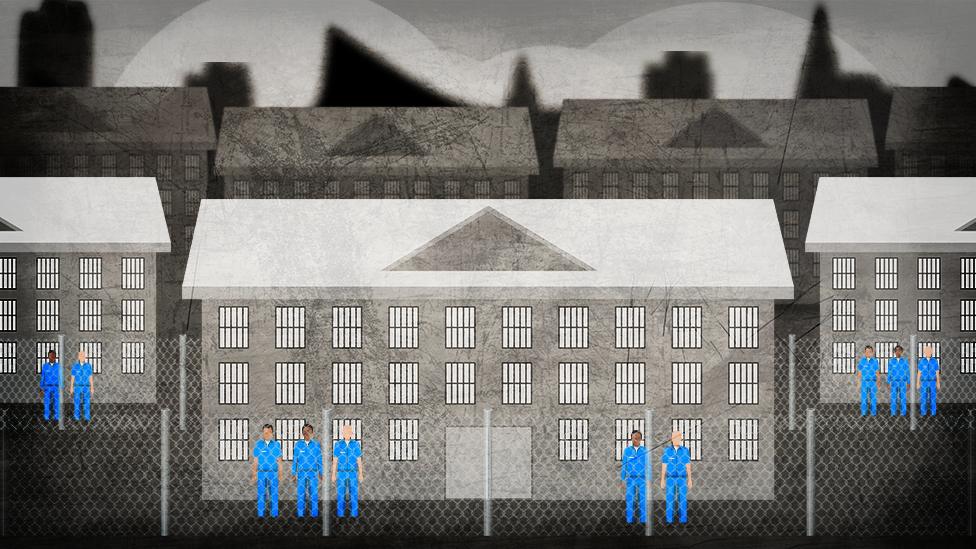
- Published7 June 2018
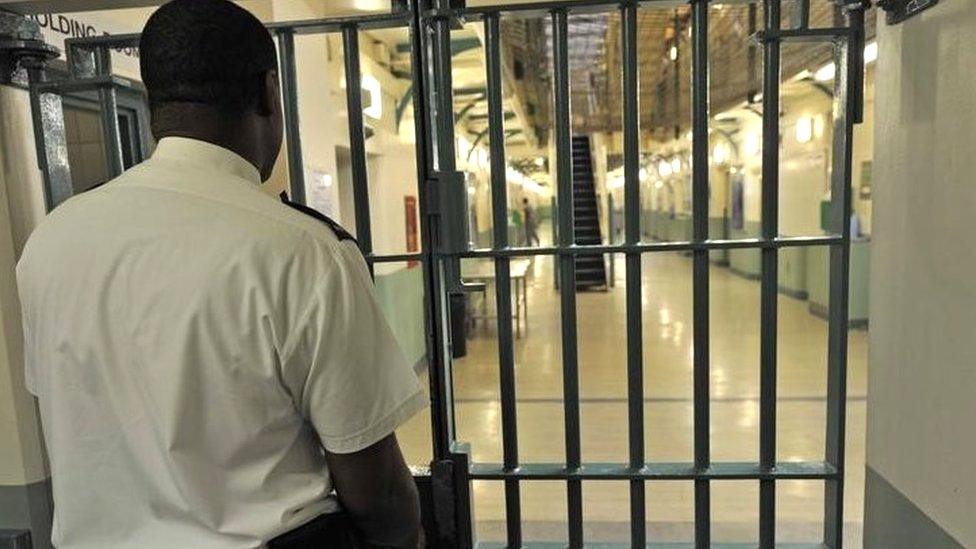
- Published27 April 2018
